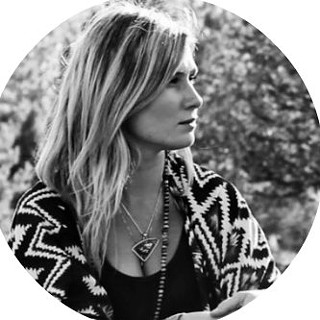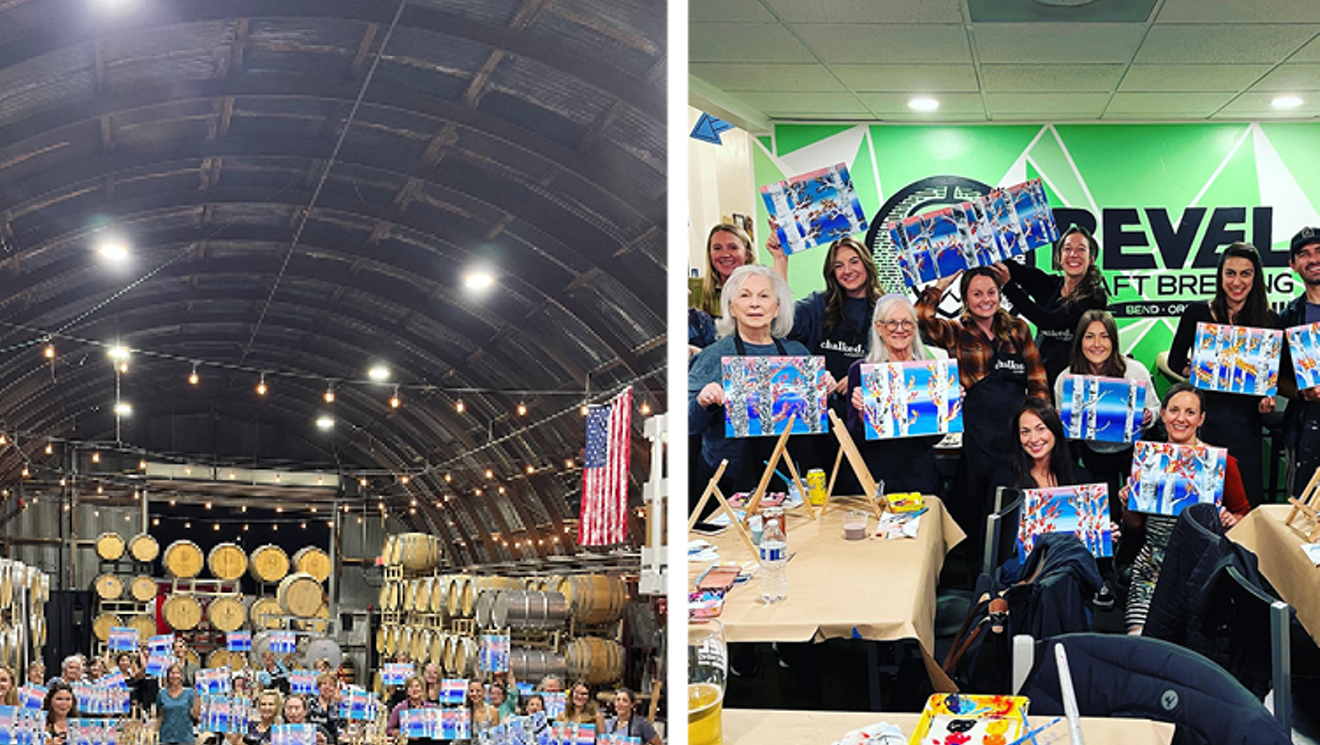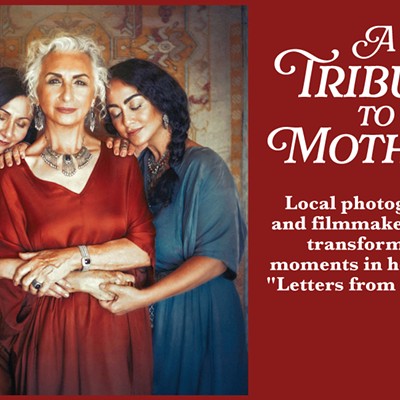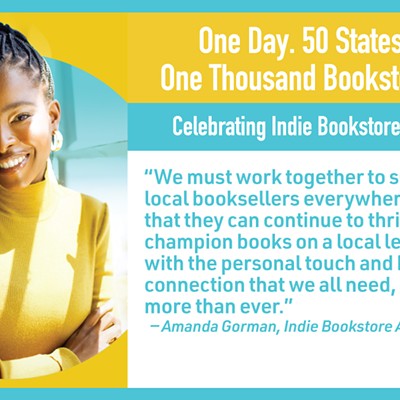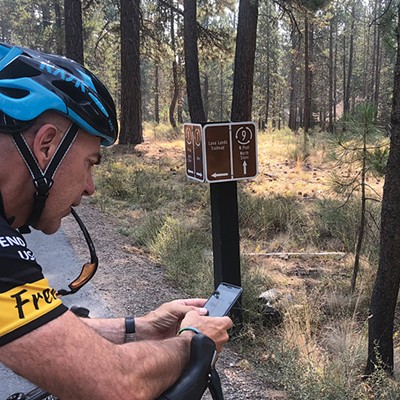Oh pardon me, sorr-ye.
I'm over here, the Canadian hiding in the corner, sitting on the chesterfield (that's Canadian for couch). Most days I fly by undetected. I look like you, I wear flannel, I enjoy burritos, string music and hip-hop. But then I ask to go to the washroom, talk about the greatest comedians of all time - a la' Jim Carrey, Mike Myers and Rick Moranis, scrunch my face anytime someone mentions Bieber or Nickelback and give you a blank stare when you talk about "that time in freshman/sophomore/junior year. And lawd' don't get me started if an "out and aboot" comes out — you'll sniff me out quicker than I can say, "Eh?"
Hi. I'm Canadian, a legal U.S. alien and terribly proud of it — just ask my American husband. He'll tell you just how great I think Canada is.
I've been in 'Murica for almost four years, and in that time, I've been — quietly and politely — chalking up the similarities and differences between our two fair nations. On the eve of my motherland's 150th birthday on July 1—Canada Day—I'd like to share my love and hate relationship with you.
Talking American Politics:
In The U.S., It's Taboo.
In Canada, It's A National Pastime
With the longest unprotected border in the world, it's an amazing feat that this sibling rivalry is as seemingly peaceful as it is. I'd wager most Americans forgot about us until 2015 when hunky Prime Minister Justin Trudeau came into the picture, ex-boxing bod in full force and making headlines for forming an equal-gender cabinet simply because, as he put it, "It's 2015."
Without going too much into the recent political turmoil in the U.S., I have to say: U.S.A., you hate getting political. Which makes this whole Trump thing even more infuriating for you. This whole thing is just dragging on isn't it? Why can't we talk about football instead?
The old adage about not talking about "politics, sex or religion" with family members at Thanksgiving has never been more true. I learned this the uncomfortable way when we didn't go to Thanksgiving last year because of a "Who-said-you-said-what?-about-Trump's-(fake)-inauguration-size Facebook war/longest thread of my entire life" I had with my husband's (Republican) family member. We ended up at a cult/yoga "retreat" instead, all thanks to my Canadian pleasure in dissecting American politics.
I've learned that talking politics — except in select situations — is taboo because it's something that's viewed as a precursor to an argument — which makes sense considering you only have two major political parties. No wonder you're polarized.
With at least five major Canadian political parties, politics can be, far less, shall we say argumentative? And exciting. Unless you're French-Canadian. Then that can get weird, pretty fast (Quebec has that niche-Texan-we-should-separate mentality). Canadians tend to have less of an extreme right or left and more so, a scattering of ideologies on a vast, more lenient plane. Within government, Canadians tend to trust authority, evident in our tied history to the British monarchy and as part of The Commonwealth. We didn't show King George the door; we still have his ancestor's face on our (Monopoly) money.
Canadian and American politicians remarkably behave much the same; just think of these two words: Rob Ford — the cocaine-snorting, bellowing and extremely photogenic ex-mayor of Toronto. The greatest differences in our politics seem to have arisen in the '70s and '80s when the U.S veered towards Reaganism and Canada continued on a liberal path until an eight-year conservative government sprouted up in the mid-2000s. Canada has moved to the center while the United States has, well, that's up for debate at the moment. Still, same-sex marriage was legal way back in 2004, with the U.S only following suit 11 years later.
From my experience as a political studies major and journalist, Canadians generally approve of the government (once in place) and rally behind it. Americans tend to show distrust and can view it as a necessary evil, which is evident in the amount of "freedom" jargon you guys always throw at me around the Fourth of July.
Immigration: Melting Pot vs Mosaic
Nothing is more sought after then the "American Dream," where the chance for transformation is traded for assimilation. The U.S. has an abundance of opportunity, bolstered by its capitalistic nature — where even a corporation is viewed as a person. Never have I thought anything is more possible than living in America. Loans are doled out on a whim, tax rates are low when compared to Canada and support is high for the dreamy entrepreneur.
Immigrants to the U.S. see the coveted green card as an honorable achievement and end up identifying as American first with their previous citizenry secondary. Yes, America's the melting pot of ethnicities, but don't forget you're freaking American first. For me, this rang ever so true when I received my first official green card papers, congratulating me on becoming a "legal alien"— something I found offensive, as "alien" seemed to be someone completely foreign, almost unwelcome, but tolerated.
Growing up in Toronto as a first generation immigrant— my parents escaped communist Poland in the late '80s — I was surrounded by other first generations from Portugal, Trinidad, The Philippines... the list goes on. We were all sheepish about how our kitchens reeked of smells from our native countries, but when asked where were we from, we'd always answer with the native country first. I am Polish-Canadian. Multiculturalism is celebrated, not shelved. Social anthropologists deem this as a mosaic, which is slightly different than the melting pot mentality.
Andrew Kohut, an American pollster, argued that the real differences between Canada and the United States are not national, but rather regional. That is, Canadians and Americans in adjacent regions are likely to resemble each other – eastern Canada with New England and Oregon with British Columbia. I'd add that liberal Americans have more than a passing resemblance to liberal Canadians, and conservative Canadians to conservative Americans, worshipping at the shrines of Ronald Reagan and Margaret Thatcher – a sign perhaps that both countries are indebted to their transatlantic forefather, the United Kingdom.
Guns
I'm not going to touch this one with a 10-foot/3.3 metre pole.
But, the concealed carry permit you guys got going on scares the living bejeebers out of me.
Health Care
When I first moved here, a member of the "Universal Healthcare for All Oregonians" found out I was Canadian and approached me to do a talk at the public library regarding healthcare. I lamented that my only medical qualification was being a) Canadian and b) using the system. He was overly enthusiastic that this more than qualified me. The talk went fine, up until the very end when a cute, button-nosed 80-year-old woman raised her hand and asked, "In Canada, does your free health care pay for abortions, too?" Red-faced, bumbling, I replied that I had no idea... but that, yes, although I don't have to worry that my burst appendix will cost me $45,000, abortions, because elective, probably weren't free. Neither are prescriptions, unless you're over the age of 65.
Yes, the healthcare system, paid out of tax dollars, (that yes, are higher than the U.S.') is a fraught system. Long waits, delayed procedures, overworked doctors can be the norm. You hear stories of Canadians crossing the border to get MRIs. But I have never had anxiety over the state of my health as I have while living in America — and I'm 29.
Plus, if I have a baby, I get 50 weeks of paid maternity leave. Booyah.
Sorry, Not Sorry
OK, USA. I'm sorry. Really sorry, for not maple-syruping some of these truths, and on the eve of your freedom celebration, no less. It's not in my nature as a Canadian to be this mean... which leads me to the last truth.
Canadians are not as nice as we seem and it can be hard to live next to a cultural, military and economic superpower such as the United States. But Canadians secretly love being the underdog, because if you're on top, you may just topple. We like being the quiet ones, waiting in the wings, or the penalty box. (Had to slip that hockey reference in there).
But saying sorry — as we so often do — is good for you. Although we're mocked for always apologizing, studies at the University of Waterloo found that saying sorry boosts happiness and strengths relationships. And if you're not convinced, apologizing to a cop gets your fine reduced by an average of $51.
Refusing to apologize may lead to a sense of empowerment... but that's not in your nature is it, America?
America, I love you.
But you're bloody weird.

